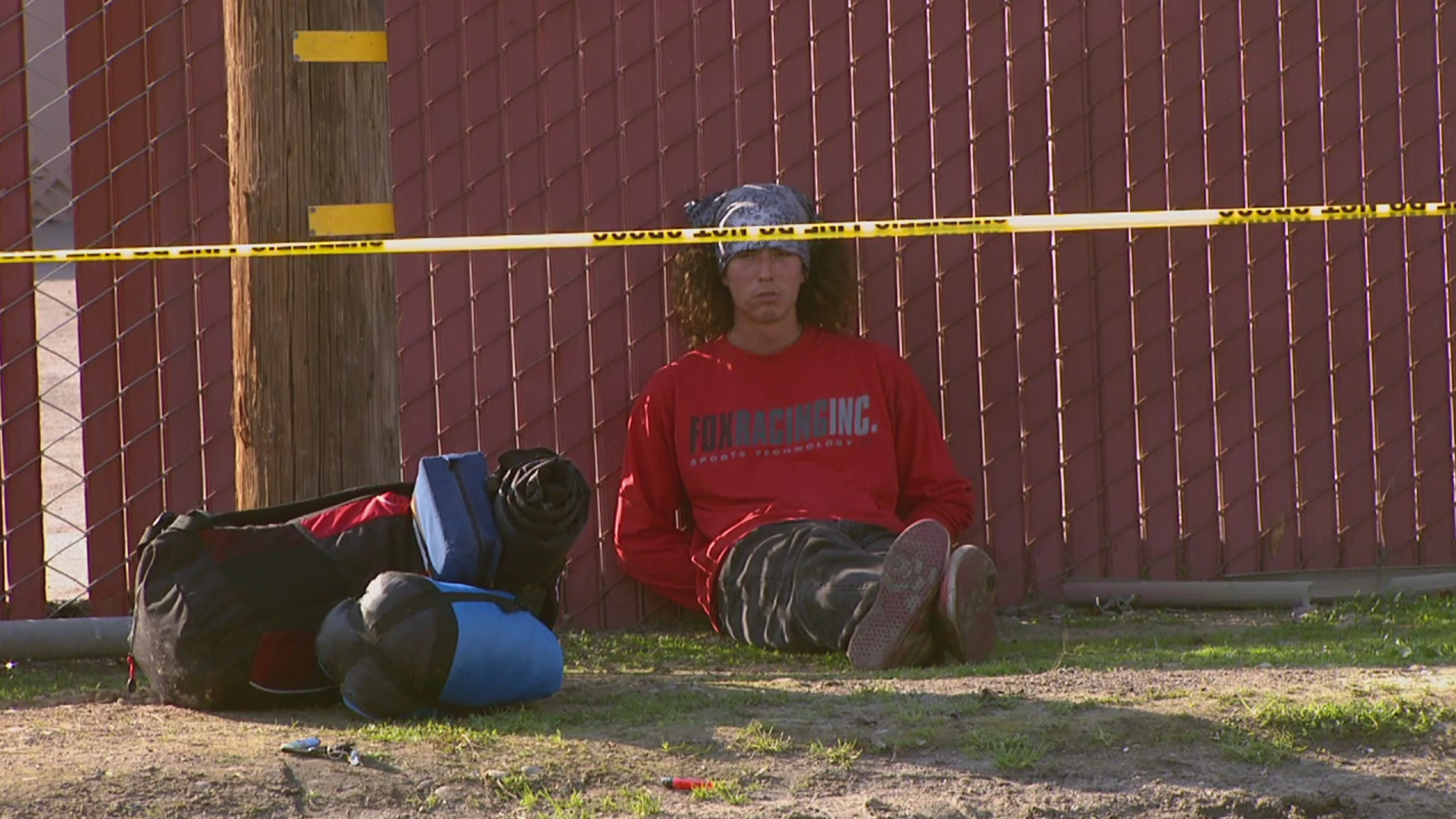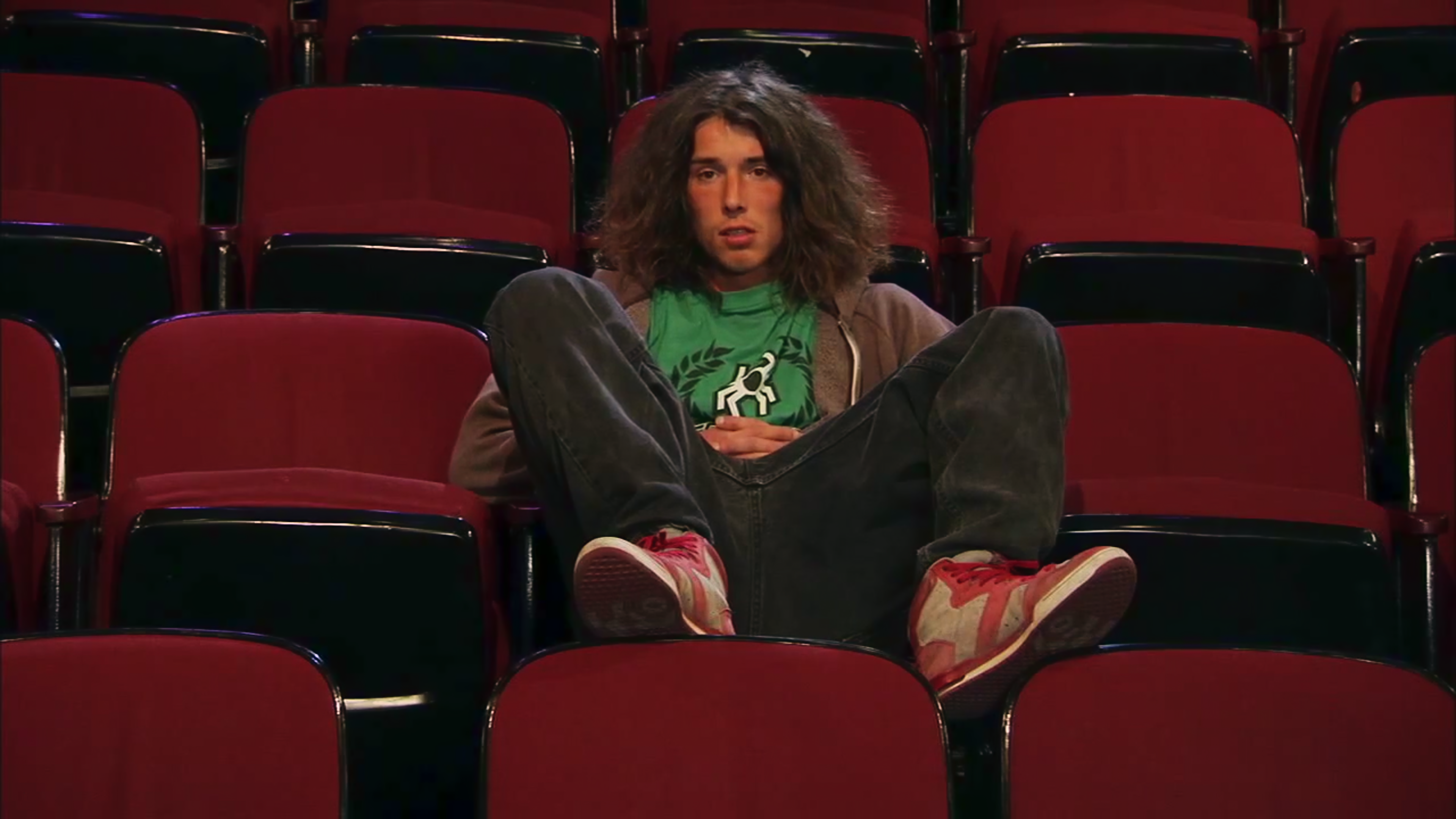
Kai, as he was known at the time, never denied hitting a man on the head with a hatchet. He said it plainly, in a video that would be viewed by millions and propel him to viral fame. The clip was recorded shortly after the incident itself. Kai was speaking to Jessob Reisbeck, a journalist who worked for KMPH, a local TV news station in Fresno, California.
The man Kai hit with a hatchet had allegedly hit someone with his car. Kai, who had apparently been in that very car, claimed that the man then grabbed a woman who was trying to help the injured person.
“A guy that big can snap a woman’s head like a pencil stick,” Kai told Reisbeck, adding: “So I f*****g ran up behind with a hatchet.” Then, holding up an invisible weapon, he reenacted the scene. “Smash, smash, suh-mash,” he said, punctuating each word with a virtual blow.
The incident happened in 2013. After Reisbeck shared the video on YouTube, Kai rose to the archetypal viral fame of that era. There were memes. There were auto tuned versions of his “smash, smash, suh-mash” tirade. There were “smash, smash, suh-mash” T-shirts.
In Kai, the hatchet-wielding hitchhiker, America found not only a hero, but also an unexpected best friend. Kai was the apparent definition of a free spirit. He was unhoused and appeared to prefer it that way. During an appearance on Jimmy Kimmel Live, he referred to himself as “home-free.” “I am home,” he said, in a seeming reference not just to his immediate surroundings, but to the world at large. His dearest dream was to one day own a specific kind of surfboard and surf the waves. In the meantime, he appeared to preoccupy himself mainly with skateboarding.
That narrative took an abrupt turn a mere three months later, when Kai – whose birth name turned out to be Caleb Lawrence McGillvary – was arrested on murder charges. He was accused of killing Joseph Galfy, an attorney in New Jersey.
It was a shock to the nation. The apparent innocence of Kai’s earliest video appearances was impossible to reconcile with the idea of violent crime. But The Hatchet-Wielding Hitchhiker, a new Netflix documentary, interrogates the entire narrative surrounding McGillvary. It picks apart the superficiality of viral fame and the qualities it allowed viewers to overlook. Most compellingly, it reveals behind-the-scenes moments the public wasn’t privy to at the time of Kai’s rise to fame, giving an air of inevitability to his story’s dark ending.
That sense of clarity stems perhaps from the fact that Colette Camden, the documentary’s director, hadn’t heard of McGillvary until she started working on the programme. She never knew him as Kai, the heroic hatchet-wielding hitchhiker. From the start, she knew his story would be that of an undoing.
“I was so drawn to it, because it’s an extraordinary story,” she tells The Independent in a video call, days before the documentary’s release. “You think there’s this kind of joyous romp at the beginning, with this hero. Although, when you first encounter him, I think there’s a lot of questions, which perhaps a lot of people didn’t ask at the time, but that’s part of the story.”

Caleb McGillvary was born in 1988 in Canada. According to his parents, who spoke to The Star-Ledger in 2013 after their son became suspected of murder, he had behavioral issues from a young age. "He was in treatment homes until he turned 18 and then they cut him loose and washed their hands of him," Gil McGillivary, his father, told the paper. "Caleb made accusations that he was physically and mentally abused at one of the homes. The system let my son down."
In his original interview with Reisbeck, McGillvary said he didn’t “have any family” and that “as far as anybody I grew up with is concerned, [he was] already dead.” His mother disputed that assertion, telling The Star-Ledger in 2013: "He has a family that misses him. He has a family that loves him. There have been some attempts, but we have no way of contacting him. He knows my number. My number hasn’t changed. If he calls and wants our help, we’re there for him."
The Hatchet-Wielding Hitchhiker further explores McGillvary’s childhood, as well as his life in the lead-up to the 2013 video. His timeline is often hard to pin down with absolute certainty, but what we know for sure is this: by the time he spoke to Reisbeck, McGillvary was living on the road. He was the kind of person who recounted hitting a man on the head with a hatchet without any hesitation, and apparently without any misgivings. He was also the kind of person who started a media interview with these words: “Before I say anything else, I want to say no matter what you’ve done, you deserve respect. Even if you make mistakes, you’re lovable. And it doesn’t matter your looks, skills, or age, or size, or anything, you’re worthwhile. No one can ever take that away from you.”

McGillvary’s arrest on suspicion of murder came as a shock. Yet, from the onset, his interview with Reisbeck made clear that he had reacted to alleged violence with violence of his own – an aspect that seems to become lost in the noise of his nascent fame.
“We see what we want to see in those characters,” Alex Marengo, an executive producer, says during the same video call. “In Kai’s case, he’s this hero who saves a woman from being attacked, and it’s taken sort of at face value. Whereas as soon as you really stop to think about it, you’re thinking,’Well, hang on a minute. Who is he? And why did he have a hatchet? Was that the only way to deal with this issue?’”
In the weeks following his interview with Reisbeck, viral fame seemed the perfect complement to McGillvary’s lifestyle. His reputation meant he often got recognized on the street, and made it easier for him to access food and lodging. It also meant Hollywood came knocking.
Without revealing too much here, one of the most gripping moments in the documentary explores this early – and stunningly ill-fated – attempt to introduce Kai to the world of reality TV. It was around that same time that McGillvary appeared on Jimmy Kimmel Live. There, too, his quirks were on full display. “A lot of people are calling you a hero because you thwarted that crazy guy, right?” Kimmel asked him, only for McGillvary to reply: “Well, there’s not so much difference between him and who they sell as Jesus anyway, is there?”

The man McGillvary struck with the hatchet was found not guilty of attempted murder in January 2014, following the car crash, and convicted of assault with a deadly weapon. By then, McGillvary was jailed, awaiting trial on murder charges in New Jersey, and could not return to Fresno to testify. “I won’t say whether it hurt or helped,” the man’s attorney, Scott Baly, told ACB13 of McGillvary’s absence. “It affected everything.”
In 2019, McGillvary was convicted of first-degree murder in the death of Joseph Galfy, a 73-year-old attorney. McGillvary has maintained that Galfy drugged and raped him after inviting him into his home, and has alleged that he was acting in self-defense. In August 2021, he lost an appeal. He remains imprisoned in the New Jersey State Prison, in Trenton.
Throughout the documentary, McGillvary emerges as a complicated, sometimes unknowable person whose complexity could not fit within the flattened ecosystem in which his viral persona took form. It confronts viewers with the seemingly irreconcilable facts of McGillvary’s apparent likeability and his undeniable moments of violence. “He could be both,” Camden says. “He could even be all three, couldn’t he? He could be the hero, villain, and victim.”
A true-crime documentary, Camden points out, usually starts with a crime, “and then you go back and find out who did it, and why.” But the story of The Hatchet-Wielding Hitchhiker starts “on a completely different note and tone”. We meet the perpetrator before he became a perpetrator. “And yet,” Camden adds, “there’s something about that first viral video where there is a kind of inevitability about it, like nothing good could come of this.”
‘The Hatchet-Wielding Hitchhiker’ streams on Netflix starting 10 January in the UK and in the US







